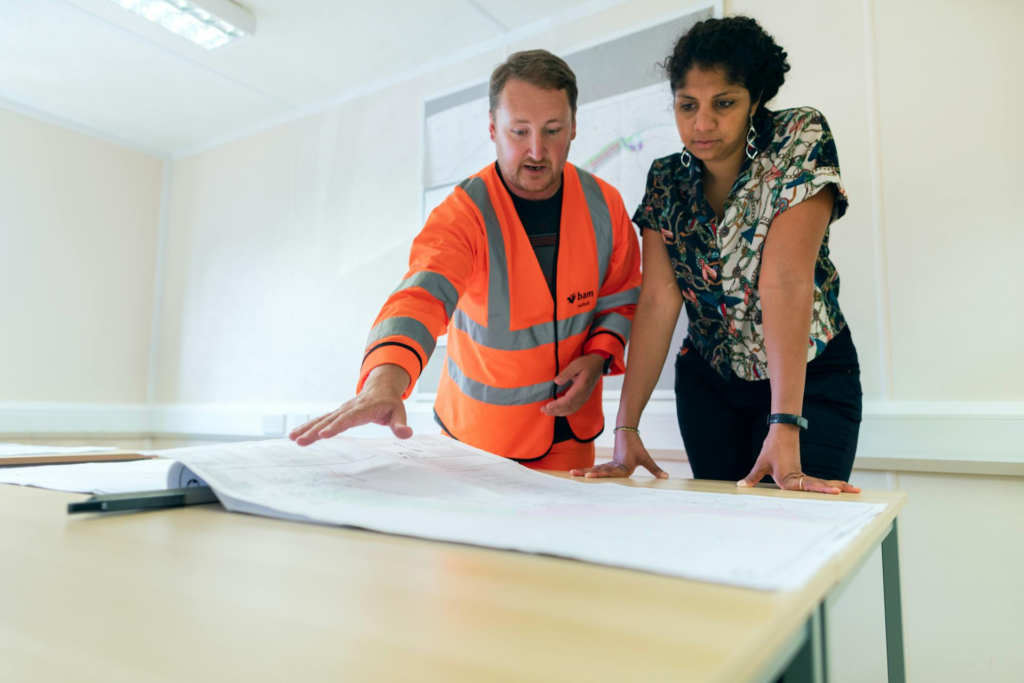A core part of successful construction management is building strong, reliable relationships with subcontractors. Specialists in their field, subcontractors can provide essential services to move your project forward.
According to the Project Management Institute poor communication leads to project delays and poor performance of subcontractors and staff, creating numerous secondary adverse effects on the project’s success. Building strong relationships is grounded in the ability to communicate needs, goals, and objectives clearly. Consider the following strategies for achieving this type of success in construction management.
Cultivating positive relationships with subcontractors in construction projects is done through effective communication, fair treatment, and a collaborative problem-solving approach.
Selecting Reliable Subcontractors
When hiring an employee, construction management teams often put a good amount of work and effort into the research of that individual, including their skills, licensing, and past performance. With subcontractors, you may not be hiring an employee, but you are choosing a professional to represent your company on behalf of the client. For that reason, it is critical to hone your talent acquisition skills and look for reliable subcontractors. Factors to consider include:
- Proper licensing and certifications for the project
- Referrals from previous jobs similar in scope to your own
- Online reviews to determine how they work with customers directly
Establishing Clear Expectations
It isn’t fair to require a subcontractor to meet specific objectives and goals without explaining those details to them long before they get started. The key to establishing clear expectations includes several steps:
- Define your expectations for the services the subcontractor will provide. Clearly articulate this information verbally and write it down.
- Determine what level of expectation you should have. For example, if you are frustrated with timelines or communication, consider whether you are being objective or impatient. What is realistic for this subcontractor to provide?
- Set expectations for adherence to compliance and regulatory requirements. In the construction industry, this is a critical component to minimizing risks for you as a general contractor and project owner.
- Meet with subcontractors to follow through. Take the time to provide feedback as you go through the relationship. Keep it positive as much as possible, but address concerns as soon as they become obvious.
- Set a positive tone. Build relationships through a positive level of interaction on a consistent basis.
Provide Timely Payments
Ensuring subcontractors receive timely payments is critical not just from the perspective of meeting your obligations but also as a necessary step in preserving the subcontractor’s ability to work on your project. If you are not going to make payments on time, the subcontractor is likely to turn to another company that will help them meet their financial needs.
Note that your contract should clearly outline payment terms including what occurs when the services provided do not meet your needs. A component of construction management is not just to threaten with a lack of payment, but to work through obstacles, delays, and overall mistakes with clear communication. If you are struggling with a subcontractor, ensure your contract provides you with a way out of the relationship.
Resolving Disputes Promptly
There is no doubt that the current work environment for many small businesses, including subcontractors, is challenging. While, as a general contractor and project owner, you need to show empathy as a leadership skill, there are situations where mistakes will occur and project success is on the line.
When a dispute occurs, go back to the start of that relationship and evaluate strategies to move forward.
- Verify the interactions that occurred. Determine where the mistake was without an accusatory tone. For example, if a project missed the deadline, open a conversation with the contractor with, “I would like to better understand why this delay occurred.”
- Find solutions that both parties can accept. Collaboration is critical in good and bad situations. If there is no way to resolve the conflict in a positive manner, mutually agreeing to move on is a decision. Most times, this is not necessary. A conversation about options that work for both of you can alleviate further delays in finding another subcontractor.
- Seek out a third party when necessary. In large-scale disputes, it may be necessary to seek out a third-party arbitrator to handle the conversation and decision-making.
Encourage Feedback and Input
Excellent relationships with subcontractors are a two-way street. By encouraging subcontractors to share what you could do better, you open the door for the contractor to feel valued and essential to the job.
Take the time at various stages within the project to seek out that feedback. Visit the job site midway through the subcontractor’s project to have a frank conversation. Ask questions like, “Do you have everything you need to meet the objectives…” or “Is there anything I can do to facilitate success?”
Takeaway – Find the Right Talent to Support Your Project Needs
Maintaining strong relationships with subcontractors is key to long-term success in construction management. It ensures project delivery and minimizes frustrating delays across the board.
To facilitate the best possible outcome, construction management teams can rely on MRINetwork to find talent and build those relationships. Learn more about what MRINetwork can do to facilitate success in your organization.

Connect with MRINetwork